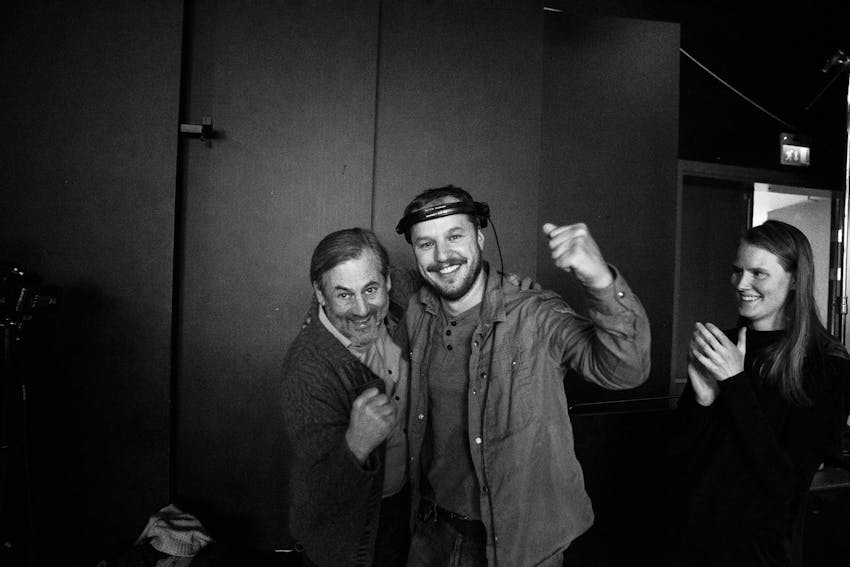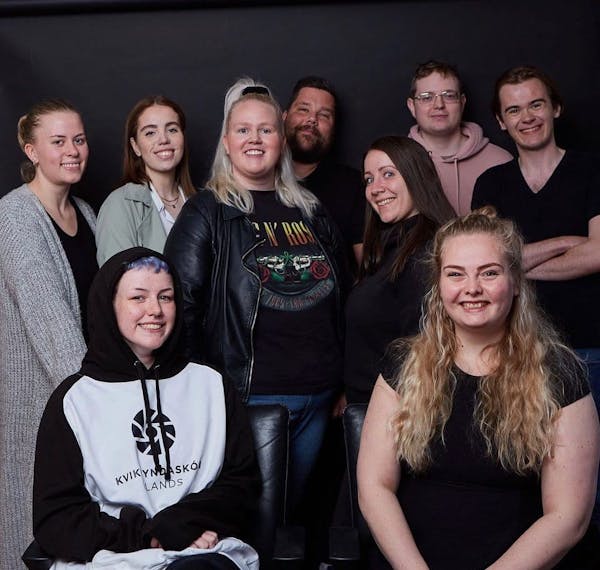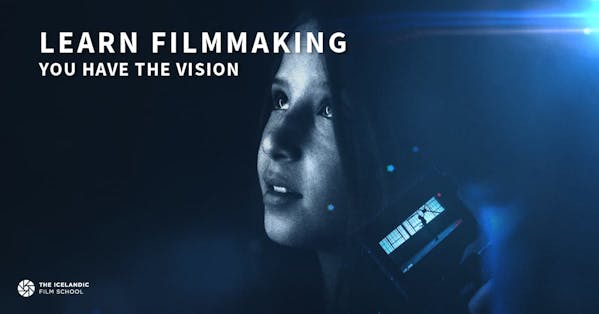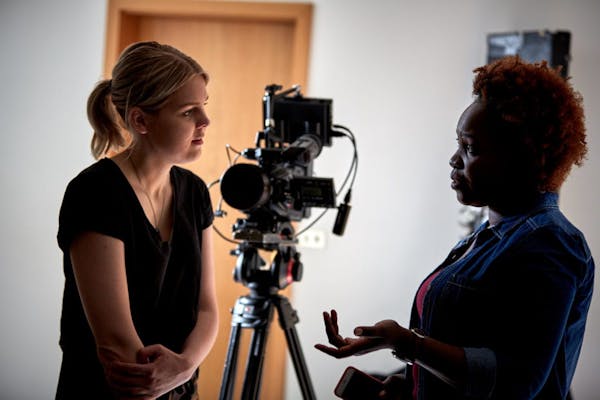Snævar Sölvason, screenwriter, director and multitasker
Snævar Sölvason graduated from Screenwriting and Directing at The Film School in 2014, after saying goodbye to the world of finance, and has been successful in filmmaking ever since. Among the projects he has worked on are Albatross and Eden, along with the documentary series Skaginn, which have been shown on RÚV. At the moment, he is working on a new film, "Odd fish", which tells the story of two friends who open a restaurant, but when one of them comes out as a trans woman, the relationship is tested.

What was the first cinematic experience you remember having an impact on you?
The first memory associated with movies is a sad yellow kitten in a cardboard box, alone and abandoned in the pouring rain on the streets of a big city. This is a scene from the animated film Oliver and company, which was shown in Ísafjarðar cinema in 1988. I was 3 years old then and this was my first trip to the cinema.
You made a big life-changing decision when you went to study film making, what made it happen?
I had been dabbling in screenwriting for a few years alongside work and was also shooting freelance content when I judged the situation that I would have a better chance of advancing in the film industry if I was in the right environment. I looked at schools abroad, but the costs were too high for me, so I thought it would be best to go to The Icelandic Film School.
How did you experience your studies at The Film School?
I thought it was great. Personally, I benefited the most from interacting with the teachers who worked as directors and screenwriters in the business. They could tell you and teach you many things that I still use today. My fellow students were also a strong group - really fun people who I still keep in touch with today.
Why did you choose the department of Screenwriting and Directing?
Writing and directing is the only thing I wanted to do, so that course was my focus.
As a screenwriter, where do you get your ideas from?
After I made the decision to follow this path in life, the idea antenna has been turned on ever since and the ideas come from all directions. Several ideas have been born out of the various jobs I have been involved in, and the workplace and the occupation are an important part of the topic. Sometimes I'm watching an old movie and think how nice it would be to see a similar movie today. I also read quite a bit and have a bunch of books that I could try adapting if the opportunity arises. So the well is not emptying it seems to me, and I think it will take me more than a lifetime to shoot them all.
What is most important to you as a director?
A good crew comes to mind first. Then the right actors for the roles. It doesn't matter how good the script is, if the actor is not right then the film loses its connection with the audience.
How do you handle the role of both screenwriter and director?
I see these roles as different parts of the same job. There is a world that I want to see on the screen and in order to make it happen, I first have to write the idea down on paper and then lead the train as a director through financing, preparation, filming and post-production. Whether I'm better at one thing than another is up for grabs, but I have to admit that writing is my favorite.

Filming in Iceland can be complicated, with the varied weather and conditions, what is the best way to deal with it?
As with everything; "Surrender to God and all your problems will be solved". If I reduce myself to a more low-key level, I have found it best to look at sudden changes as opportunities for improvement. In the last project I directed, the weather was constantly attacking us, and instead of canceling the scene or complaining about the schedule, I asked myself if the scene could be more interesting if I took advantage of the changed conditions. Most of the time, the answer was positive, and then it was full steam ahead.
Do you see the great advancement in technology as an obstacle or an opportunity in filmmaking?
Technological progress is clearly an opportunity. Now everyone can shoot and cut, which was not easy before, especially for kids in isolated villages like in my case. I think I would have been forced to deal with something completely different than filmmaking if I had been born a decade earlier.
Do you have any idea about what would make it easier for future filmmakers in Iceland to create content?
Read books. They store spiritual values with easy access.
What projects are you working on at the moment?
I am editing a feature film that I write and direct called “Ljósvíkingar”. It will hopefully be ready by the middle of the year. At the same time, I am writing scripts, rummaging through old books and developing stories.
Do you have a dream project?
I have some, but it is not right to talk about them at the moment.
Finally, what advice do you have for people considering film studies?
Just do it. You will regret not doing it more than actually doing it.


